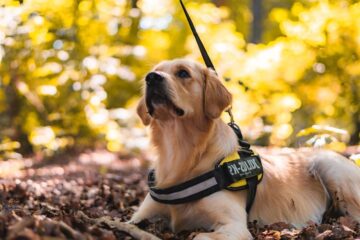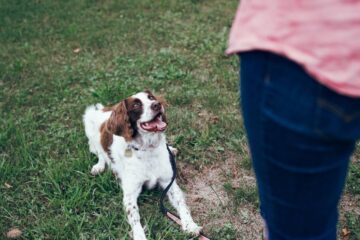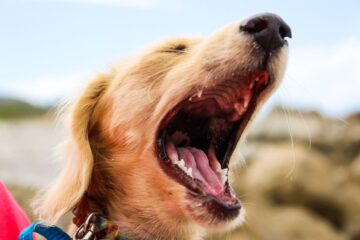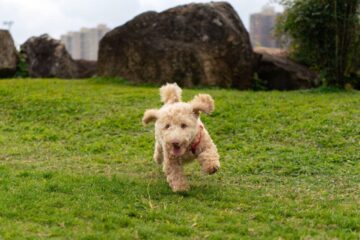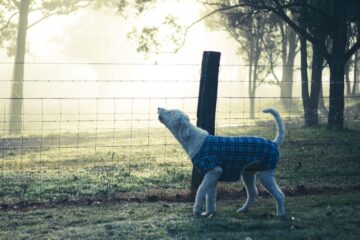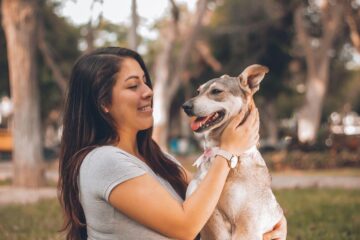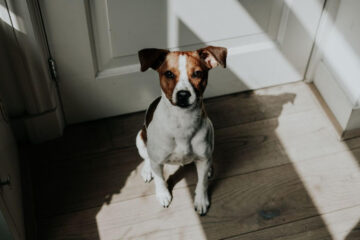Did you know that certain dog breeds are more likely to nip and bite than others? These include the Akita, Dachshund, Jack Russell Terrier, and Labrador Retriever. If you have one of these breeds, you may want to be extra diligent about training your puppy not to bite. So, how to stop puppy biting? Find out below!
How to Stop Puppy Biting? Understand Why Puppies Bite
The first step to stop your puppy biting is to understand why they’re doing it. Puppies explore the world with their mouths. It’s how they learn about things. When your puppy bites or nibbles on you, they’re not being aggressive. They’re just playing and trying to figure out what you are.
Another reason for biting is teething. Puppies start to get their adult teeth at around 12 weeks old. This can be an irritating process, and puppies often try to relieve the discomfort by chewing on things. Your puppy may be going through a teething phase if they’re biting more than usual.
That doesn’t make it any less painful, though! So, how to stop puppy biting and chewing? We’ll go through each method in detail below.
Give Your Puppy a Chew Toy to Redirect Their Behavior
One way to stop your puppy from biting is to give them something else to chew on. This can be a toy, a bone, or a piece of rope. When they start to chew on you, tell them „no” in a firm voice and give them one of these things. They’ll eventually learn that chewing on people is not allowed, but chewing on their toys is okay.
Chew toys also help with teething pain. So, if your puppy is biting more than usual because they’re teething, giving them something to chew on can help relieve some of that discomfort and direct their attention away from your ankles!
Imitate Puppy Play – Tell Your Dog They’re Hurting You
Puppies often play too rough. They don’t know their own strength, and they can unintentionally hurt you. The best way to stop puppy biting in this case is to imitate how puppies play with each other. When your puppy bites you, yelp or say „ouch” in a high-pitched voice. This will startle them and let them know that they’ve hurt you.
If your pup doesn’t stop, quietly walk away from them. This will show them that biting doesn’t lead to the attention or playtime they want. Next time, they’ll be less likely to bite so hard.
Arrange Puppy Play Dates With Dogs of a Similar Size
One reason puppies bite is that they’re bored. If they don’t have anything else to do, they’ll start chewing on you or your belongings. A great way to stop this behavior is to set up playdates with other dogs. This will give them something to do and tire them out so that they’re less likely to bite.
It will also naturally teach them bite inhibition. When they play with other dogs, they’ll learn how hard they can bite without hurting them. This will carry over to how they interact with you.
Just make sure the other dogs are around the same size as your pup. If they’re too big, your puppy could get hurt. If they’re too small, your puppy could accidentally hurt them.
Use Training Commands to Stop Your Puppy From Biting
If you’re consistent with your commands, your puppy will eventually learn what you mean. When they start to bite, say „no” or „leave it.” Reward them with a treat when they stop, and ignore them when they don’t. The short answer to the question of how to stop puppy biting is: consistently!
You can also use commands to prevent your puppy from pouncing on your ankles or nipping at your heels. Whenever they start to get too excited, give them the command „sit” or „stay.” This will help them learn how to control their impulses. With enough practice, your puppy will learn that biting doesn’t lead to the attention or treats they want.
Remember to only use positive reinforcement. Yelling at your puppy or hitting them will only make the problem worse. It’s still a reaction, and your dog will think you’re playing with them – or become scared of you.
When your puppy bites, walk away from them and don’t give them any attention. This includes talking to them, making eye contact, or touching them. The goal is to make sure they understand that biting leads to a loss of attention, not a gain.
Give Your Overly Excited Puppy a Time-Out
Sometimes, puppies just need some time to calm down. If your puppy is getting too excited and is starting to bite, put them in a crate or another room for a few minutes. This will give them a chance to calm down and reset. Once they’re calm, you can let them out and try again.
If your puppy is still biting, you may need to increase the amount of time they’re in their time-out. Just make sure not to leave them in there for too long, or they’ll start feeling anxious and stressed. Be careful not to associate the crate with punishment, either. This means you should put them inside calmly, without yelling or scolding them. You want your puppy to see it as a safe, calm place.
Use a Taste Deterrent to Stop Your Puppy From Biting
If you’re looking for a solution that is a little more hands-off, you can try using a taste deterrent. This is a commercially made substance (e.g., bitter apple juice) that tastes bad to dogs but is safe for them to ingest. When your puppy bites you, spray the deterrent on your skin.
Enroll in a Puppy Training Class
If you’re struggling to stop your puppy from biting, enrolling in a training class can help. A professional trainer will be able to teach you how to stop puppy biting, as well as other important commands. They’ll also be able to give you customized advice for your pup.
Puppy training classes typically last around six weeks. In each class, you’ll work on basic commands like „sit” and „stay.” You’ll also learn how to socialize your puppy and stop them from biting. Most classes will have around eight to ten puppies, so it’s a great way for your pup to make some new friends.
Make Sure Everyone in the Household Is Consistent
One important thing to remember when training your puppy not to bite is to be consistent. If everyone in the household is letting the puppy nip and bite them, it will be more difficult to get the puppy to stop. Have a family meeting about the rules regarding biting and make sure that everyone is on the same page. Otherwise, your puppy will just get confused or pick a favorite person to listen to.
How to Stop Adult Dogs From Biting
If you missed the window for training your dog not to bite, don’t worry. You can still teach an old dog new tricks. The techniques for how to stop puppy biting and how to stop adult dogs from biting are actually very similar.
You’ll still want to use positive reinforcement when your dog stops biting. This could include treats, petting, or verbal praise. You may also want to try using a taste deterrent for dogs that are particularly resistant to training.
Enrolling in a dog training class can also be helpful, even if your dog is an adult. A professional trainer will be able to give you customized advice on how to stop your dog from biting. They can also help you troubleshoot any problems you may be having.
With a little patience and consistency, you can teach your dog not to bite. Just remember to remain calm and be positive, and you’ll be on your way to a bite-free household in no time.
Stop Puppy Biting Today!
These are just a few of the techniques that dog trainers recommend to stop puppy biting. If you’re consistent with your training, you’ll be able to put a stop to it in no time. Just remember to be patient – puppies are still learning how to control their bite. With a little time and patience, your pup will grow out of this phase.
Now you know how to stop puppy biting. And if you’re still having trouble, don’t hesitate to reach out to a professional trainer for help. They can give you customized advice and answer any questions you have. Good luck!


